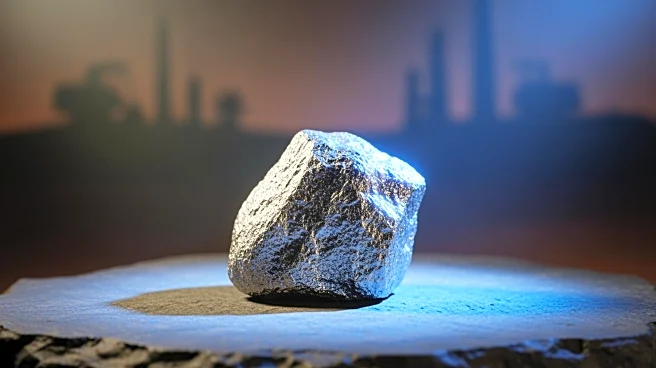Rapid Read • 8 min read
A recent study has indicated that blowing into a conch shell, an ancient practice known as shankh blowing, may help alleviate symptoms of obstructive sleep apnoea (OSA). Conducted by researchers at the Eternal Heart Care Centre and Research Institute in Jaipur, India, the trial involved 30 participants aged between 19 and 65 who suffer from OSA. The study divided participants into two groups: one practiced shankh blowing, while the other engaged in deep breathing exercises. After six months, those practicing shankh blowing showed a 34% reduction in daytime sleepiness and improved blood oxygen levels at night, experiencing fewer OSA episodes. The technique is believed to strengthen upper airway muscles, potentially offering a low-cost alternative to traditional treatments like continuous positive airway pressure (Cpap) machines.
AD
The findings of this study could have significant implications for the treatment of sleep apnoea, a condition affecting millions worldwide. Traditional treatments, such as Cpap machines, can be effective but are often uncomfortable for patients. Shankh blowing offers a non-invasive, cost-effective alternative that could improve patient compliance and quality of life. If further research confirms these results, it could lead to broader adoption of this technique, reducing reliance on machinery and medication. This development could also encourage exploration of other non-traditional therapies for sleep disorders, potentially benefiting the healthcare industry by diversifying treatment options.
A larger trial involving multiple hospitals is planned to further investigate the efficacy of shankh blowing in managing OSA symptoms. Researchers aim to compare this technique with other established strategies, such as lifestyle changes and limiting alcohol consumption. The success of these trials could lead to the integration of shankh blowing into standard treatment protocols for sleep apnoea. Additionally, the study's findings may prompt further research into similar non-invasive therapies, potentially expanding treatment options for other sleep-related conditions.
The study highlights the potential of ancient practices in modern medicine, suggesting a cultural shift towards integrating traditional methods with contemporary healthcare. This could lead to increased interest in exploring other cultural practices for their therapeutic benefits, fostering a more holistic approach to health and wellness. Moreover, the study underscores the importance of patient-centered care, emphasizing comfort and accessibility in treatment options.
AD
More Stories You Might Enjoy











